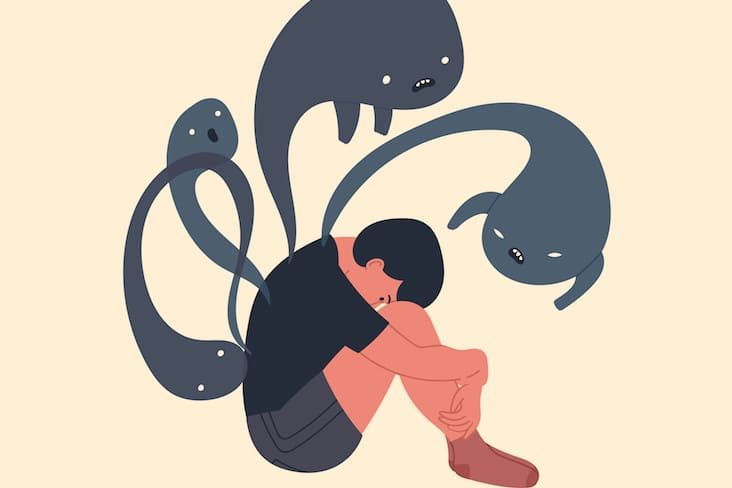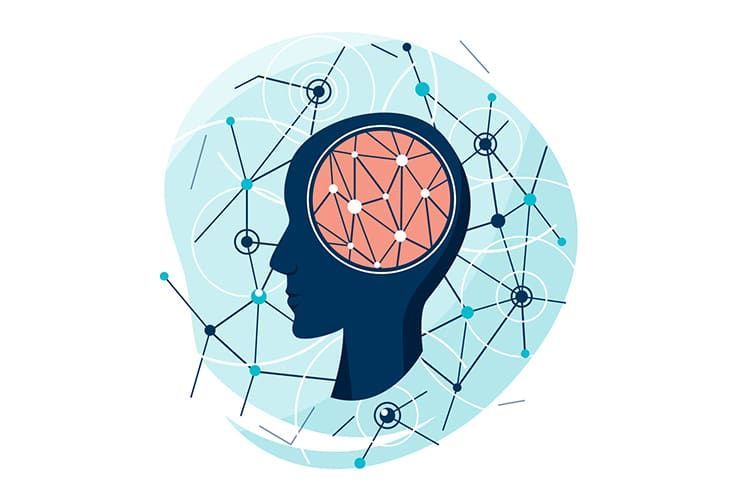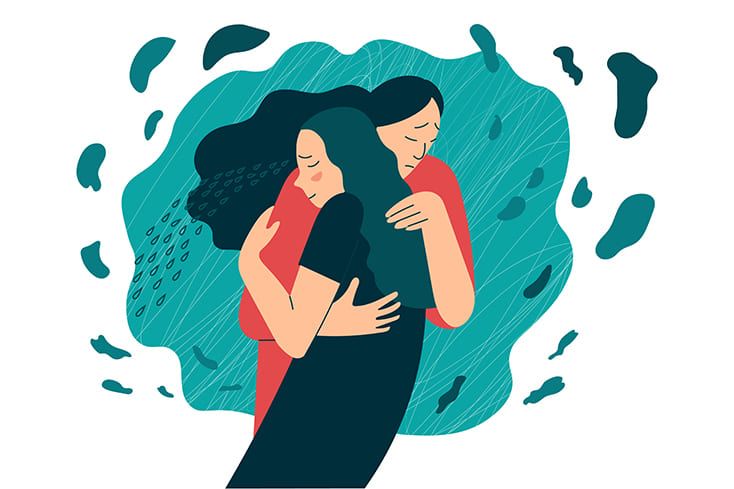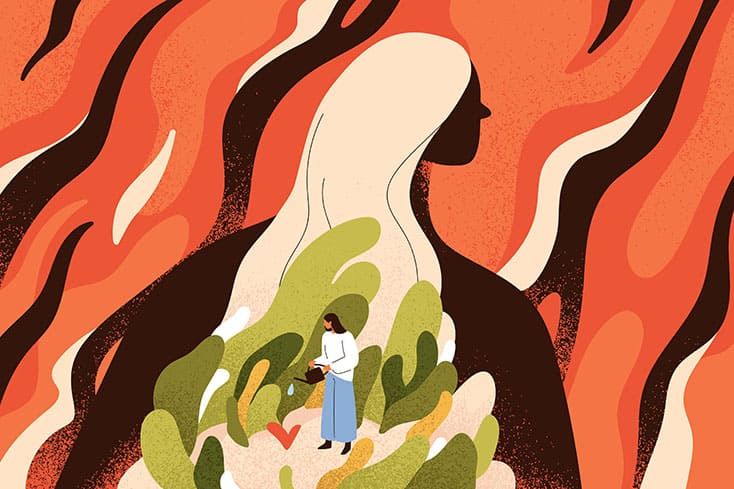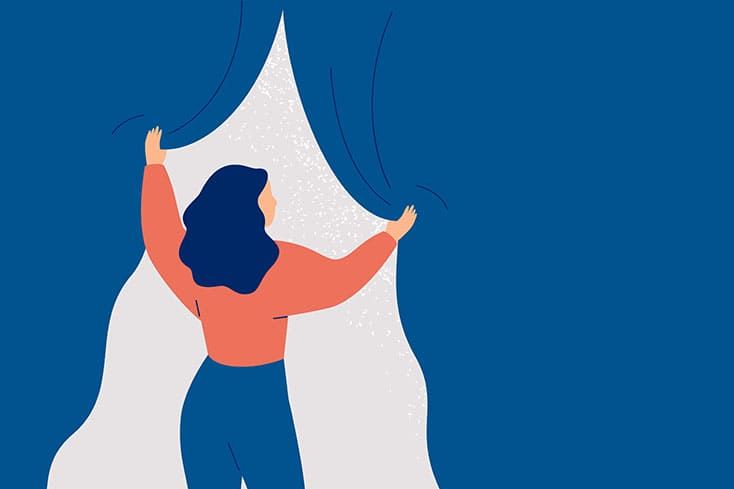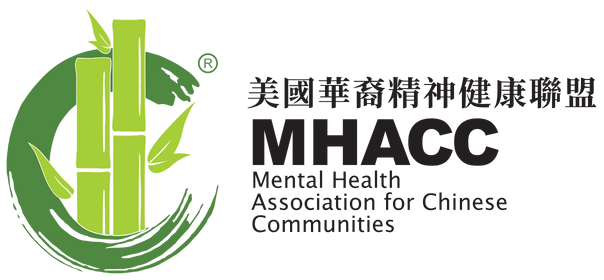透過人生各階段學會識別我的警訊 | Learning My Warning Signs Through Each Stage of My Life
MHACC 雙語部落格 Bilingual Blog
Scroll down for the English Version ⬇️
發佈日期:2021 年 5 月 28 日
作者:Nicole Beeman-Cadwallader
我坐在九年級的英文課教室裡,盯著《奧德賽》的書頁,那一刻,我對自己的理解徹底改變了。教室彷彿模糊起來,身邊的人像是被推遠了,我的注意力被強烈地吸引在紙上的文字上。雖然我眼睛在讀,但我無法理解內容。當下,我真的辦不到。
我罹患雙相情緒障礙症。多年來,這樣的經歷一層層揭開了我大腦運作的模式。在人生的每個階段,我都更敏銳地察覺到自己可能陷入憂鬱或躁症發作的警訊。
童年時期
其實在我童年時期,就已經有一些心理健康問題的警訊。雖然我直到青少年才被正式診斷,但我仍希望我的童年經歷能為其他照顧者提供一些參考。
心理病症若能在首次發作時及早治療,就越有可能減少日後復發或嚴重程度。我大約在 10~11 歲那年,有將近一整年,每週有好幾晚都幾乎沒怎麼睡。我會躺在床上,盯著牆角或牆上的影子發呆。有時我會為玩具編故事,這有時能幫我入睡,但更多時候我會陷入無止盡的思緒漩渦。
我常常看到窗戶上出現根本不存在的手印,後來甚至開始幻覺,一個女巫懸浮在天花板角落,對我低語一些令人恐懼的話。有時我會在半夜驚醒,發現自己躺在地板上,臉和臀部有瘀青,卻完全不知道怎麼會這樣。
我記得曾和幾位老師談過這些經歷,但他們都置之不理。有一次,一位老師甚至對我感到不耐,嘆了口氣,還誇張地把頭撞向牆壁。因為我學業成績很好、個性安靜,所以我的掙扎被忽視了。大家以為我「沒事」。然而在兒童身上,心理疾病的徵兆常被誤認為只是尋求注意或鬧脾氣,但這些信號應該被認真看待。
青少年時期
高中一年級時,我緊緊抓住學業成就,試圖尋找穩定與安全感。我每天只睡不到五個小時。剛開始是為了讀書,後來卻演變成失眠。原本老師們稱讚的專注力,卻越來越無法維持。每個醒著的時刻,我都感到胸口緊繃、容易暴躁。
最後,我逐漸脫離了現實。我自己不記得,但照顧我的大人告訴我,我曾穿著不合時節的衣服在外面遊蕩,還在馬路上危險地穿越。我以為自己快要死了。
那天我呆呆地盯著《奧德賽》的書頁時,我的英文老師把我送去保健室。我對護士說我覺得自己快死了,需要去醫院。媽媽接我離開,帶我去精神病院。當時那或許是對我來說最安全的地方。不過如果我們當時能接觸到像「NAMI Basics」這樣的線上資源,我相信身邊的大人會更有能力應對當下的情況。
青年時期
大學畢業後,我搬到德州南部的一個小鎮,擔任國中科學老師。第一年壓力巨大。學生生活的現實讓我感到震驚,而我對自己的期待——要為他們創造高學業標準的機會——幾乎把我吞噬。
我又經歷了一次明顯的躁症與憂鬱發作。一開始,是我晚上待在教室打掃到九、十點;我總是把備課拖到最後一刻,因為我堅信「靈感總在最後一刻才出現」。我靠著極少的睡眠仍感覺「超棒」且高效率,於是睡得更少,吃得也更少。
我總是在天未亮就開車去學校,當我在地平線上看到那座發光的水塔,我的胃就會緊縮,不得不把車停在路邊嘔吐。到了十月底,我完全崩潰。我無法集中精神,連摺衣服都覺得困難。我不小心摔了筆電,螢幕裂了。我知道,我無法提供學生他們應得的教育品質。於是我請假休養。
成年階段
成為大人後,我對自己的情緒與心理狀態更加敏銳。
每天,我都努力讓自己保持在「中間狀態」。感覺「太好」會觸發我過度自信、急躁、不自覺的危險行為;而感覺「太差」則會引發我完全癱瘓、自我懷疑與絕望。睡得少、動作加快,是我快要進入躁期的警訊;注意力難以集中、反覆懷疑自我,則可能是憂鬱症的前兆。不論是哪一種,當我感到失控——無法掌控時間、思緒、甚至人生——就是我最明確的警訊:該採取預防措施了。
我仍會有一些黑暗的時期,讓我難以看見希望,但現在的我更懂得如何在黑暗中找到方向。
作者簡介
Nicole 最近結束了長達 20 多年的 STEM 教育職涯,現在正投入她真正的熱情:致力於支持青少年心理健康與心理疾病的康復服務,並作為家長與照顧者的資源支援者。
📍 了解更多請造訪:www.iamoneinfive.com 或來信聯絡:nbeeman22@gmail.com。
May 28, 2021
By Nicole Beeman-Cadwallader
Original Source: https://www.nami.org/bipolar-and-related-disorders/learning-my-warning-signs-through-each-stage-of-my-life/
While sitting in my ninth grade English class, staring down at the pages of the Odyssey, the way I understood myself changed forever. I felt the room around me blur, almost like the rest of the people in the room were pushed away from me, and I became narrowly focused on the words on the page. I was reading them, but I was not making meaning of them. At that moment, I couldn't.
I live with bipolar disorder and, throughout the years, experiences like this peel back layers of my brain and the way it works. At each stage of my life, I’ve become more acutely aware of the warning signs that I am at risk for a depressive or manic episode.
Childhood
Even in my childhood years, there were warning signs of my mental health condition. While I wasn’t diagnosed until adolescence, I’m hopeful that my childhood experiences are useful for other caregivers.
The earlier a first psychotic episode is treated, the greater the likelihood for
reducing relapses or severity of future episodes. For about a year when I was 10–11 years old, several nights a week I slept very little. I’d lie in my bed, staring at the shadows in the corners and on the walls. I’d make up stories for my toys, which sometimes helped me fall asleep, though often I’d end up in thought spirals.
Non-existent handprints would appear on the windows and, eventually, I hallucinated a witch hovering in the corner near the ceiling. She would whisper frightening things to me. Sometimes, I would wake up in the middle of the floor with bruises on my face and hip bones, not knowing how I arrived there.
I remember several conversations with my teachers where my experiences were ignored. On one occasion, my teacher was so frustrated with me that she let out a large sigh and mockingly banged her head against the wall. My high academic achievement and quietness meant that my struggles were dismissed. They assumed that I would be fine. In children, symptoms of mental illness may go undetected, attributed to attention-seeking behaviors or tantrums, but they should be taken seriously.
Adolescence
In my first year of high school, I held tightly to academic achievement for stability and security. I slept less than five hours a night. Initially I did this to study, but eventually it morphed into insomnia. The sharp focus that my teachers generally praised fell farther from my grasp. In every waking moment, I felt a tightness in my chest. I was irritable.
Eventually, I lost touch with the reality of my surroundings. I don't remember, but caring adults in my life told me that I wandered outside with inappropriate clothing for the weather, and that I unsafely walked in front of traffic. I thought I was dying.
The day that I was blankly staring down at the Odyssey, my English teacher sent me to the nurse. I told the nurse that I thought I was dying and needed to go to the hospital. My mom collected me and took me to a psychiatric hospital. It’s possible that was the safest place for me at the time, though if we had the resources that are now available online, like
NAMI Basics for example, I am sure the adults in my life would have felt more equipped to navigate this situation.
Young Adulthood
After graduating from college, I moved to a tiny town in south Texas to teach middle school science. The first year was daunting. The realities of my students’ lives overwhelmed me. The pressure I put on myself to succeed at providing them with opportunities for high academic expectations nearly swallowed me.
I experienced another acute episode of mania and then depression. It started with obsessive cleaning of my classroom, sometimes until 9 or 10 p.m. I’d put off lesson planning until late at night, often the night before, because I had the grandiose idea that “my best ideas came to me at the last minute.” I felt “amazing” and productive on small amounts of sleep. So, I started sleeping less, and then eating less.
I would drive into school before the sun had risen, and as soon as I saw the glowing water tower in the south Texas horizon, my stomach would clench and I would have to pull the car over to vomit. By late October, I crashed. I couldn't focus. I felt incapable of anything, even folding laundry. I dropped a computer and cracked the monitor. I knew I was not providing my students the educational experience they deserved. I took a leave of absence to heal.
Middle Adulthood
As an adult, I am much more in tune with my emotions and psychological state.
Daily, I strive for being in the middle most of the time. Feeling too good can trigger grandiose thoughts, abrasive impatience, and unintentionally unsafe behaviors. Feeling too low can trigger deep paralysis, a black hole of self-doubt and hopelessness. Sleeping less and moving faster are signs that mania or hypomania may be near. Lack of focus and self-doubt loops are signs that depression looms. In either case, the sense that I’m losing control — of my time, my thoughts, my life — is the greatest signal to me that I need to take precautionary measures.
I still have darker periods that make it difficult to see the light, but I have greater awareness of how to navigate my way through the dark.
Nicole recently left a more than 20-year career in STEM education and is now pursuing her passion to support youth mental health and mental illness recovery through service and being a resource for parents and caregivers. Find her at www.iamoneinfive.com or email her at nbeeman22@gmail.com to connect.
Sign up for our Newsletter
訂閱每月簡訊獲得最新資訊
Contact Us




